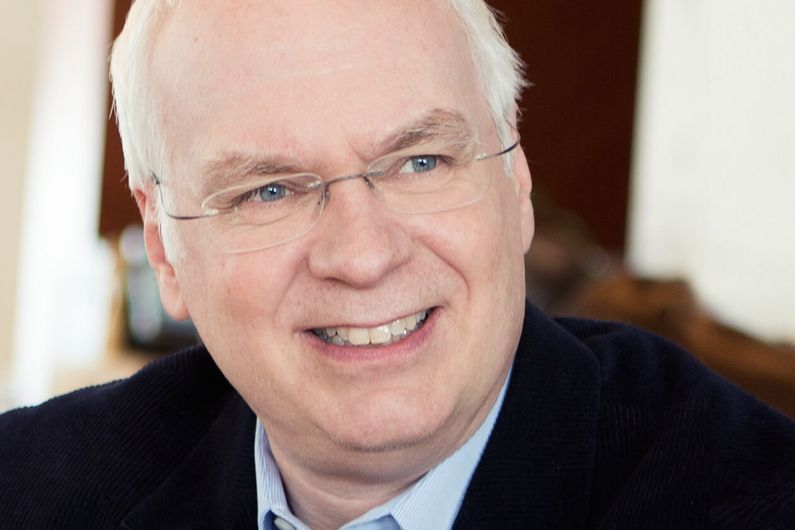A prestigious Killam Prize for Michel Bouvier
- UdeMNouvelles
02/11/2021
Biochemist Michel Bouvier has been awarded a Killam Prize for major scientific contributions in molecular pharmacology that are paving the way for new types of drugs.
Awarded every year for the past 50 years, the Killam Prizes honour the country’s most inspirational scholars in different disciplines. For 2020, the Canada Council for the Arts has awarded the Killam Prize in health sciences to Michel Bouvier, an internationally renowned researcher whose discoveries in the field of G protein-coupled receptors (GPCRs) have led to the development of new treatments for diseases such as cancer and diabetes.
Dr. Bouvier is an eminent scientist who is one the most frequently cited biochemists in the world. He teaches in UdeM’s Department of Biochemistry and Molecular Medicine, Faculty of Medicine, and directs UdeM’s Institute for Research in Immunology and Cancer (IRIC).
Dr. Bouvier also founded and heads the “Bouvier Lab,” more officially known as the Laboratory of Molecular Pharmacology and Signal Transduction. Here he and his team track GPCRs, the cell proteins responsible for recognizing a wide range of stimuli, including odours, light, food molecules, pheromones and neurotransmitters. GPCRs are ultimately responsible for ensuring different parts of the living organism communicate effectively and reliably with each other.
“The importance of these receptors to physiology and pathology is considerable because often diseases are caused by a communication problem in our body,” he explains. “This class of proteins is currently the largest family of drug targets being investigated for the development of new drugs.”
An impressive career
Dr. Bouvier had a front row seat to the “molecular biology revolution” while training with some of the best: first in neurological sciences at UdeM under the supervision of another Killam Prize recipient, Jacques de Champlain, then in molecular pharmacology at Duke University (North Carolina) in the lab of Robert J. Lefkowitz, winner of the 2012 Nobel Prize in Chemistry. Not surprisingly, upon his return to Montréal in 1989 he decided to focus on studying the molecular mechanisms underlying GPCR-mediated cell signalling with the goal of discovering new drugs with greater efficacy and fewer side effects.
Truly an international centre for both research and learning, the “Bouvier Lab” now has more than twenty staff and researchers. “We have been very fortunate to make some important discoveries and create new concepts and tools here in the Lab,” says Dr. Bouvier. “These two research axes promote knowledge transfer and basic research in therapeutic applications, and in so doing encourage interaction with the pharmaceutical industry.” Dr. Bouvier’s work demonstrates that it is possible to collaborate with industry while preserving scientific independence.
When he took over as CEO of the IRIC in 2014, it was with this same drive to create a centre for basic research where discoveries in oncology and immunology could be rapidly translated into promising therapies. Over the course of his career, he has contributed to growing the drug discovery sector in Québec, notably by helping to set up the Institute for Research in Immunology and Cancer (IRICoR), the Groupe de recherche universitaire sur le médicament (GRUM) and the Réseau Québécois de recherche sur les médicaments (RQRM). To date, he has been granted some 15 patents for his inventions.
A collective achievement
The Killam Prize is a fitting tribute to Dr. Bouvier’s scientific contributions, which have been so essential to our understanding of GPCRs, and encouragement as he continues his ground-breaking research on inverse agonism and biased signalling, pharmacological chaperones, and bioluminescence resonance energy transfer (BRET). These are all concepts that he and his team were among the first – if not the first – to introduce and are now used by scientists around the world.
“This is an honour not just for me but for my entire team and the hundreds of researchers who have worked in my lab over the years. I owe it to them!” he says. “Some have become university professors, others researchers in pharmaceutical companies. This has been a great source of pride for me.”
He adds that the award takes on added significance in the current public health crisis, especially for the next generation of researchers. “Young people are struggling. Many of them are questioning their future. So seeing society honouring the contributions of scientists and UdeM gaining greater recognition at the national level is encouraging for them.”
On a personal note, Dr. Bouvier says he is very touched to receive the same award that his former thesis supervisor, the late Jacques de Champlain, did in 1991. “I lost my father at the age of 13 and Jacques became like a second father to me. To receive this honour, as he did, means a great deal to me.”
About the Killam Prize
The Killam Prize recognizes and celebrates the contributions of Canadian researchers, scientists, doctors and scholars working in industry, government agencies and universities. With audacity and perseverance, these visionaries dedicate their career to research that improves quality of life around the world. Each recipient receives a $100,000 prize.











